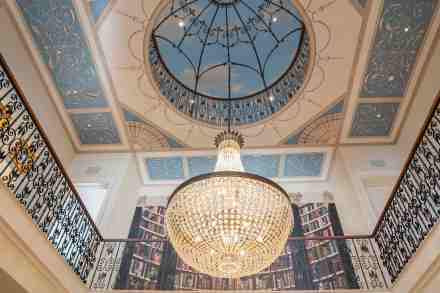The £14m Hyde Park mansion with an extraordinary story
When Joachim von Ribbentrop, Hitler’s hapless roving emissary, descended on London in 1936 with orders to negotiate an Anglo-German alliance, one of his first ports of call was the elegant mansion just off Hyde Park owned by Sir Roderick Jones, chairman of the Reuters news agency, and his wife Enid Bagnold, the writer of National Velvet. Wangling an invitation to dinner was a surprisingly astute move – the parties at 29 Hyde Park Gate were legendary, usually attracting a gilded mix of aristocrats, politicians, journalists and writers, such as H.G. Wells and Vita Sackville-West – and Ribbentrop had convinced himself that by schmoozing luminaries he could persuade Britain to side


